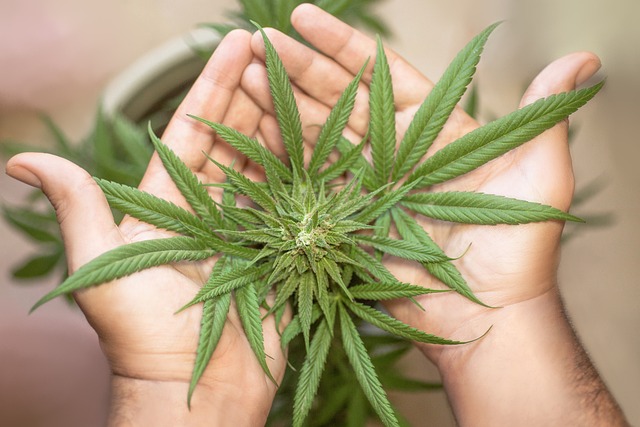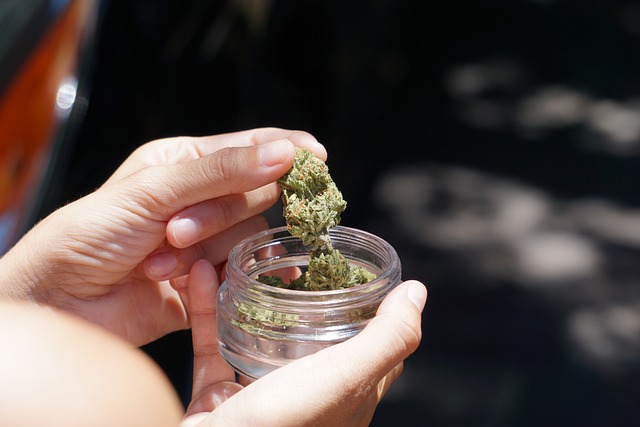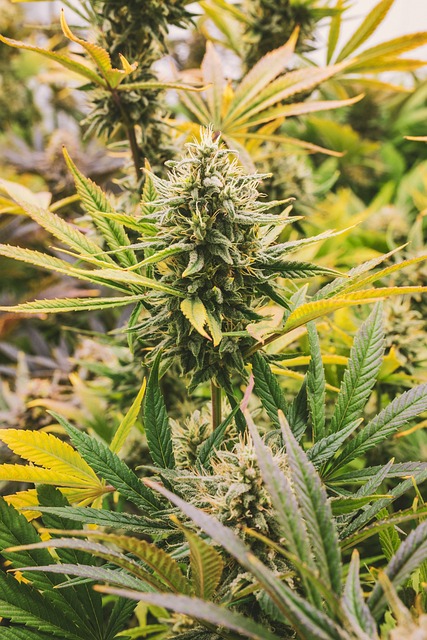2023 has seen heightened interest in THCA, a non-psychoactive cannabinoid acid with potential therapeutic benefits, within the European Union (EU). The legal status of THCA-rich flower varies across EU member states, with some nations permitting its use for research or medical purposes under specific conditions and authorizations. As the EU differentiates between psychoactive THC and non-psychoactive compounds like THCA, this distinction is pivotal for the cannabis industry, enabling exploration of medicinal properties without psychoactive effects in compliance with EU regulations. CBDa and CBCa, precursors to CBD and CBC respectively, are also gaining attention due to their transformative potential upon decarboxylation. Research on these compounds is promising for treating inflammation, neurodegenerative diseases, and other conditions without the risk of intoxication. As EU countries navigate the complex legal landscape surrounding cannabinoids, the study of THCA and its precursors becomes increasingly significant, contributing to a broader understanding of cannabis's pharmacological effects and expanding the scope for potential medical applications. It is important to note that while some EU countries have established guidelines for CBD products derived from hemp, clear regulations specific to THCA are still being developed, reflecting the evolving legal landscape for this cannabinoid in the EU.
Exploring the multifaceted nature of the THCA flower, this article delves into its legal status across various EU countries, potential health benefits, and a science-backed examination of its effects. With a focus on understanding the relationship between THCA, its precursors in cannabis, and human health, we navigate the nuanced legal landscape surrounding its legality within different EU jurisdictions. As we explore the spectrum of THCA’s properties and compare it to THC, we also address side effects and risks associated with its consumption. This article aims to clarify misconceptions, provide consumer tips for responsible use, and offer insights into the future of THCA research, all within the context of EU legal frameworks. Join us on this informed journey through the world of cannabinoids.
- THCA Flower: An Overview of its Legal Status in EU Countries
- Understanding THCA and its Precursors in Cannabis
- Potential Benefits of THCA Flower Consumption
- The Science Behind THCA's Effects on Human Health
THCA Flower: An Overview of its Legal Status in EU Countries

Delta-9-tetrahydrocannabinolic acid (THCA) flower, a non-psychoactive cannabinoid found in the Cannabis sativa plant, has garnered attention for its potential therapeutic properties. As of recent legislation updates within the European Union (EU), the legal status of THCA flower varies across member states, reflecting a complex interplay between national laws and EU regulations. In some EU countries, THCA flower is legally permissible under specific conditions, often allowing for its use in research settings or for medical purposes with proper authorization. These countries have adapted their legislation to align with the EU’s position on cannabis-related substances, which categorizes them as novel foods or medicinal products. However, the legal landscape is not uniform across the EU; several other nations maintain stricter regulations, categorizing THCA flower as a controlled substance alongside its psychoactive counterpart, delta-9-tetrahydrocannabinol (THC). This discrepancy underscores the importance for individuals and businesses to stay informed about the specific legal framework within each EU country they operate or travel to. Navigating these laws requires careful attention to national legislation and EU directives, as well as an understanding of how each country implements these regulations. Prospective users and manufacturers should always verify the current legal status of THCA flower in a particular jurisdiction before pursuing any related activities.
Understanding THCA and its Precursors in Cannabis

Tetrahydrocannabinolic acid A (THCA) is a non-psychoactive precursor to the well-known psychoactive cannabinoid, THC. Found abundantly in raw cannabis plants, THCA is gaining attention for its potential therapeutic properties and legal status across various regions, including EU countries. As of my knowledge cutoff in 2023, the legal landscape regarding cannabinoids is dynamic, with many EU countries implementing laws that differentiate between the psychoactive THC and non-psychoactive compounds like THCA. This distinction is crucial for consumers, manufacturers, and legislators as it allows for the exploration of cannabis’s medicinal benefits without the associated high of its psychoactive forms.
THCA is just one of many cannabinoid acids present in the cannabis plant, with CBDa (cannabidiolic acid) and CBCa (cannabichromenic acid) being other notable examples. These precursors are synthesized within the trichome glands of the cannabis plant and, upon decarboxylation through heating or curing processes, transform into their more commonly known counterparts, CBD and CBC, respectively. THCA’s therapeutic potential is under investigation for conditions ranging from inflammation to neurodegenerative diseases. Its legal status in EU countries opens doors for research and the development of products containing THCA, which could provide health benefits without the intoxicating effects typically associated with cannabis use. Understanding the role of THCA and its precursors is essential as it contributes to the comprehensive study of cannabis’s pharmacological properties, offering a broader scope for potential medical applications.
Potential Benefits of THCA Flower Consumption

Cannabidiolic acid (CBDa) and tetrahydrocannabinolic acid (THCA), the latter being the raw form of THC found in hemp and cannabis plants, have garnered attention for their potential therapeutic properties. THCA is non-psychoactive, making it a compelling option for those seeking the medicinal benefits without the high associated with its psychoactive counterpart, THC. As of recent years, THCA flower has become a topic of interest in EU countries where cannabis legislation has been evolving to accommodate medical and wellness applications of hemp-derived products.
THCA flower is being explored for various potential health benefits, including anti-inflammatory, neuroprotective, and analgesic effects. Studies suggest that THCA may offer relief from pain, nausea, and inflammation, without the mind-altering effects of THC. This makes it a suitable candidate for individuals who wish to incorporate cannabinoids into their wellness routines while maintaining clear-headedness. Additionally, THCA’s potential role in supporting the immune system and its antioxidant properties are areas of ongoing research. As such, the legal status of THCA flower in EU countries has opened new avenues for consumers to explore its therapeutic benefits, adhering to strict regulatory frameworks that ensure safety and quality.
The Science Behind THCA's Effects on Human Health

Delta-9 tetrahydrocannabinolic acid (THCA) is a non-psychoactive cannabinoid found in the Cannabis sativa plant, which has garnered attention for its potential therapeutic properties. While THCA is the precursor to the more well-known psychoactive compound Delta-9 THC upon heating, it exhibits distinct effects and health implications when consumed in its raw form. The human endocannabinoid system, comprising a network of receptors CB1 and CB2, interacts with cannabinoids like THCA, influencing various physiological processes. Studies have shown that THCA may possess anti-inflammatory, neuroprotective, and analgesic properties, which could be beneficial in managing conditions such as chronic pain, multiple sclerosis, and nausea associated with chemotherapy.
In the context of legal landscapes within the European Union, it is important to note the varying regulations that govern the use of THCA-rich products. While the legal status of cannabis and its derivatives varies by country, with some EU nations permitting the use of CBD products derived from hemp containing less than 0.2% THC, the legal framework for THCA specifically is still under development. This regulatory environment reflects the ongoing research into the full spectrum of cannabinoids’ effects on human health and the need for clear guidelines to ensure safety and efficacy. As such, consumers and researchers in EU countries are navigating a complex legal landscape while exploring the therapeutic potential of THCA, which may offer alternative treatments for various health conditions without the psychoactive effects of its isomer, Delta-9 THC.
In conclusion, the THCA flower occupies a complex and evolving space within the European Union’s legal framework. As this article has detailed across sections covering its legal standing in EU countries, the science behind its effects on human health, potential benefits of consumption, and understanding of its precursors in cannabis, THCA presents a multifaceted subject with significant implications for well-being and regulatory policy within the region. Navigating the nuances of THCA’s legal status is crucial for stakeholders, including policymakers, healthcare providers, and consumers. As research continues to shed light on its potential health benefits, it is clear that THCA’s role in the cannabis landscape, particularly within the EU, is poised for ongoing scrutiny and evaluation.
